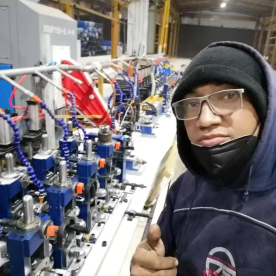[Spare parts for tube mill]Essential Spare Parts for Tube Mill Operations: Ensuring Efficiency and Longevity in Pipe Manufacturing
News 2024-7-27
****In the ever-evolving world of manufacturing, specifically in the pipe and tube fabrication industry, having the right equipment is pivotal. Among the critical components of every tube manufacturing facility is the tube mill. This machinery plays a vital role in shaping and forming steel into usable pipe and tubing products. However, the efficiency and reliability of these tube mills heavily depend on the availability and quality of spare parts. Understanding the essential spare parts for tube mills not only maximizes manufacturing efficiency but also extends the lifespan of the equipment, ensuring cost-effectiveness and optimal production capacity.
The Importance of Spare Parts in Tube Mill Operations
Tube mills are complex machines with various components that need to work in harmony. Like any other industrial machine, they undergo wear and tear due to continuous operation. When components wear out or fail, it can lead to production halts, costly downtimes, and potential losses that can have long-term implications on a company’s bottom line. Consequently, having a reliable supply of spare parts is crucial.

Essential Spare Parts for Tube Mill Operations: Ensuring Efficiency and Longevity in Pipe Manufacturing
1. **Maintaining Production Continuity**: When a component fails, replacing it promptly with a high-quality spare part minimizes downtime. This is critical for maintaining continuous production, meeting customer demands, and ensuring that contracts are fulfilled on time.
2. **Enhancing Efficiency**: Original spare parts are crafted to match the exact specifications of the original equipment. They help maintain productivity levels and prevent machinery from operating under stress, which can lead to further breakdowns and inefficiencies.
3. **Extending Equipment Life**: Regular replacement of worn components with OEM (original equipment manufacturer) spare parts can significantly prolong the lifespan of a tube mill. This is especially important for costly machinery where a replacement could incur significant capital expenses.
4. **Safety and Compliance**: Using high-quality spare parts ensures that the tube mill operates within safety parameters, reducing the risk of accidents that can lead to injuries or regulatory penalties.
Common Spare Parts for Tube Mills
Each tube mill is unique in its design and operation; however, certain spare parts are essential across many systems. Here are some of the most critical spare parts that tube mill operators should consider maintaining in inventory:

Essential Spare Parts for Tube Mill Operations: Ensuring Efficiency and Longevity in Pipe Manufacturing

Essential Spare Parts for Tube Mill Operations: Ensuring Efficiency and Longevity in Pipe Manufacturing
3. **Bearings and Shafts**: Bearings play a critical role in ensuring smooth operation of rotating components in the tube mill. When bearings wear out, they can cause alignment issues and lead to further damage. Keeping spare bearings and shafts in stock is necessary to ensure uninterrupted operations.
4. **Drive Components**: Components such as motors, drives, and gears are essential for powering the tube mill. Any failure in these areas can stall production. Keeping spare motors and drive belts on hand can prevent potential hazards.
5. **Control Systems and Electronics**: Modern tube mills rely heavily on electronic control systems for efficient operation. Maintaining spare parts for these systems, including sensors, controllers, and circuit boards, is vital for quick recovery from electronic failures.
6. **Cooling Systems**: Tube mills generate a significant amount of heat during operations, making cooling systems critical. Spare components for cooling systems, such as fans, pumps, and cooling coils, are necessary to mitigate overheating risks.
Conclusion
In today’s fast-paced manufacturing environment, investing in spare parts for tube mills is not just a best practice—it is a necessity. Keeping a comprehensive inventory of essential spare parts helps ensure that tube mills operate efficiently, safely, and reliably. Consequently, manufacturers can reduce downtime, enhance productivity, and ultimately improve profitability. By recognizing the importance of these components and being proactive in their management, facilities can cultivate a resilient manufacturing process capable of meeting both present and future demands.
